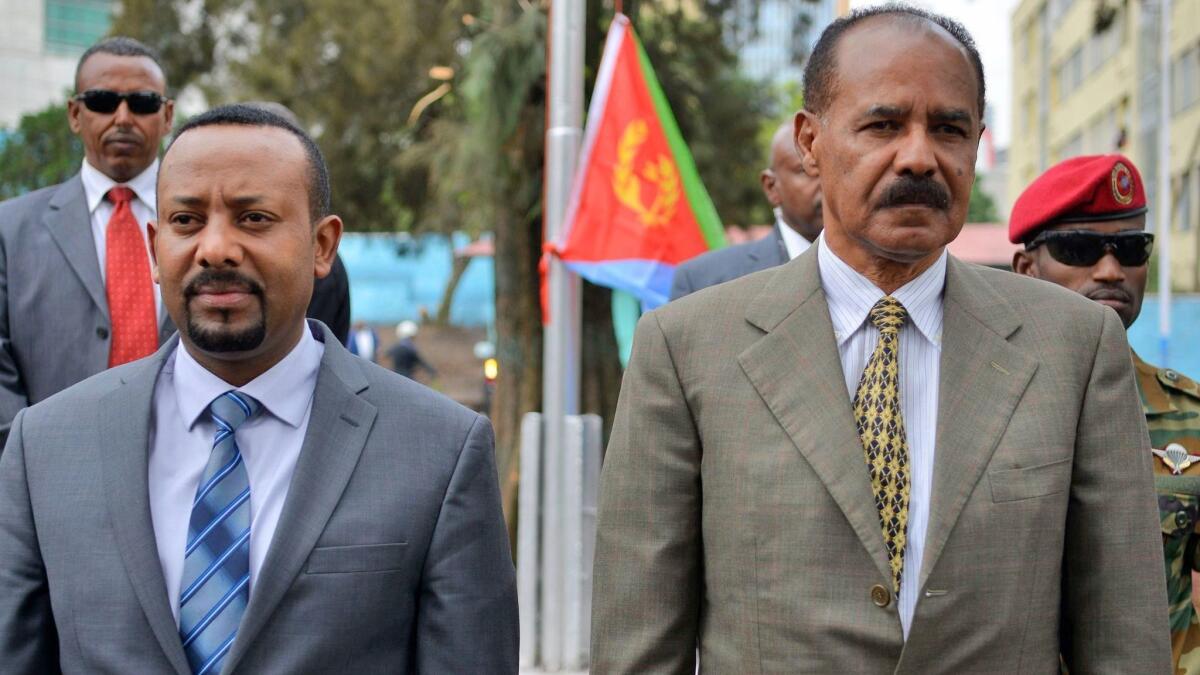Continuing reconciliation, Ethiopian and Eritrean leaders officially open their border

- Share via
Reporting from ADDIS ABABA, Ethiopia — Celebrating their dramatic diplomatic thaw, the leaders of Ethiopia and Eritrea on Tuesday officially opened the border where a bloody war and ensuing tensions had divided them for decades.
Ethiopia’s new, reformist Prime Minister Abiy Ahmed and longtime Eritrean President Isaias Afwerki visited the Bure Front along with members of their militaries to mark the Ethiopian new year, Abiy’s chief of staff Fitsum Arega said in a Twitter post.
The two then opened the border post “for road transport connectivity” and would shortly do the same at the Serha-Zalambesa crossing, Eritrean Information Minister Yemane Meskel said on Twitter.
Photos posted by both officials showed Abiy in camouflage and sunglasses walking alongside Isaias in olive drab, while civilians lined a road with the countries’ flags in hand.
The former bitter rivals have made a stunning reconciliation since Abiy, weeks after taking office in April, announced that Ethiopia would fully embrace a peace deal that ended a 1998-2000 border war that killed tens of thousands. At the time, he announced that the countries would celebrate the Ethiopian new year together: “We want our brothers and sisters to come here and visit us as soon as possible.”
Embassies have reopened, telephone lines have been restored and commercial flights between the capitals have resumed as some long-separated families have held tearful reunions. Landlocked Ethiopia, one of Africa’s fastest-growing economies, and Eritrea, one of the world’s most closed-off nations, also plan development cooperation around Eritrea’s Red Sea ports in particular.
Abiy on Monday told a new year’s concert crowd of thousands in Ethiopia’s capital, Addis Ababa, that “as of today, Ethiopian and Eritrean people will prosper together and march in unison. ... The last five months have brought hope and reconciliation.”
The Ethiopian new year has roots in the Ethiopian Orthodox Church and is related to the Julian calendar. Eritrea has used the Gregorian calendar since it gained independence from Ethiopia in 1993.
More to Read
Sign up for Essential California
The most important California stories and recommendations in your inbox every morning.
You may occasionally receive promotional content from the Los Angeles Times.










